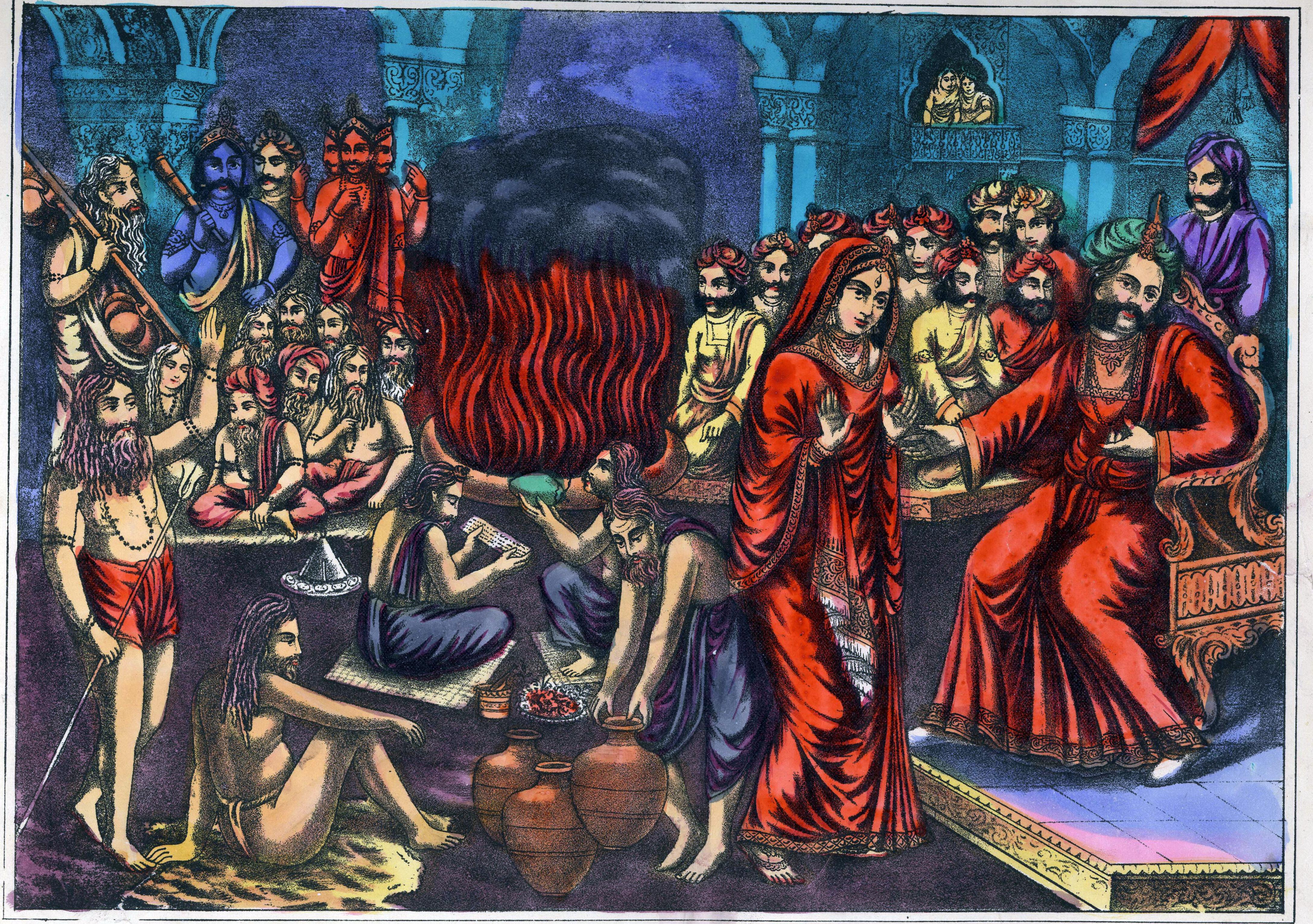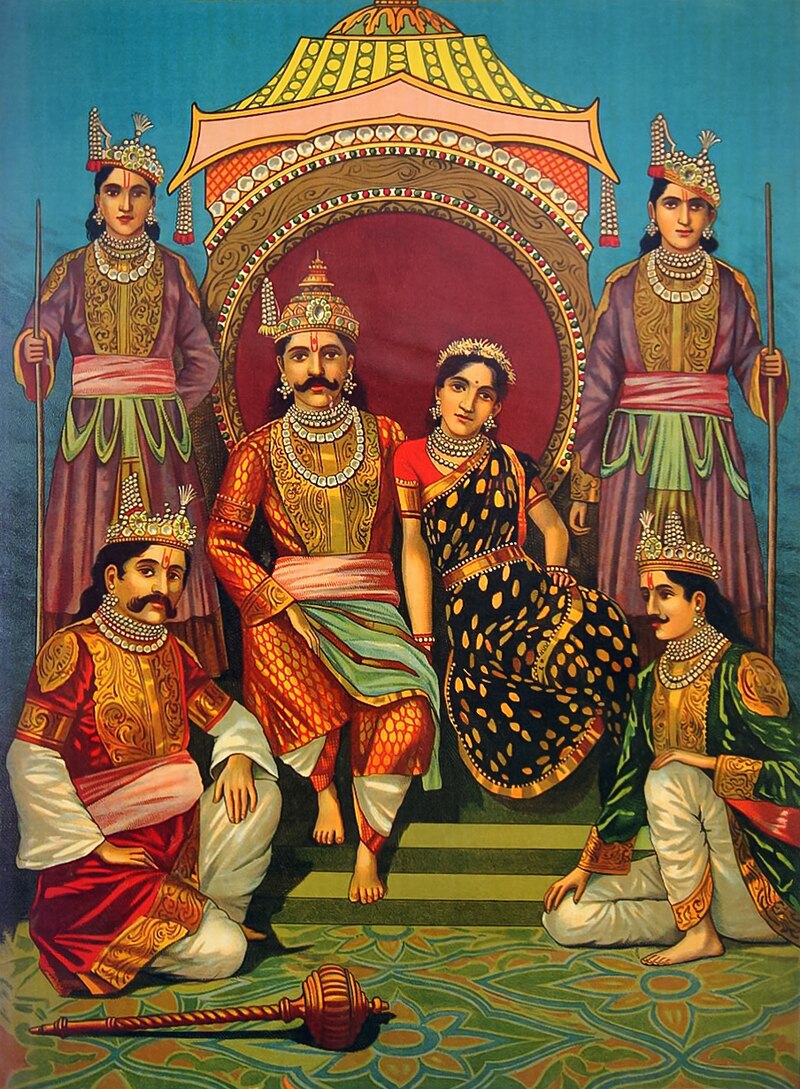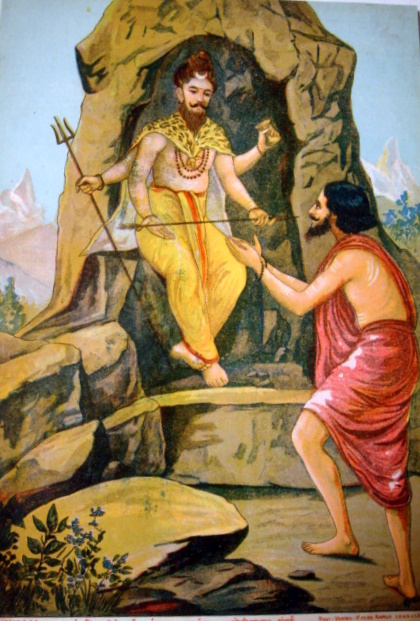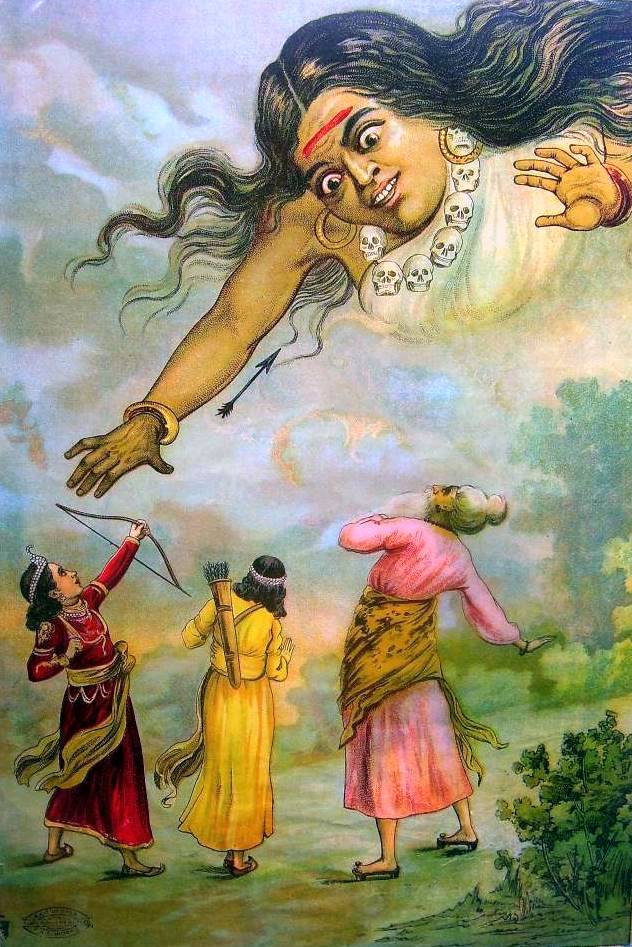Yudhishthira continued to walk along the pathway. His brothers and wife had already perished
along this path. As he thought to
himself, the sequence of events that had led to this appeared in his head. The sequence of events had started when
Yudhishthira had heard the Krishna had perished. This had been shocking news to him and his
brothers. They had loved Krishna very
much and when they had heard that Krishna had died had decided to also depart
the mortal realm to ascend into heaven.
So they began to walk on their journey to heaven. First they traveled east to where they encountered
Agni, the fire god, who had Arjuna cast his weapons into the sea. With that single instance, he had severed all
that had held him back in the mortal realm.
They then turned northward to the Himalayas. As they had crossed the Himalayas they came
across a desert and while they were in the midst of crossing the desert
Draupadi fell because of her partiality to Dhananjaya.
.jpg) |
| Journey to heaven (Source: Wikimedia) |
As they continued, walking Sahadeva also fell. With this the first of the pandavas had
fallen. As they had continued one by one
the brothers fell. The second brother to
go was Nakula, who had been broken hearted with the death of his brother and
Krishna.
Then a little while later Arjuna also fell. Bhima was saddened over these events and he
mourned their deaths. Finally, Bhima
also fell and as he lay dying, he asked Yudhishthira why he had fallen. Yudhishthira replied that he had not attended
to others while eating.
As Yudhishthira walked along Indra appeared before him telling
him that if wanted to enter into heaven he must first cast aside the dog that
was following him. Yudhishthira refused
to cast aside the dog because of how faithful the dog had been to him. Then suddenly in the place of the dog, Dharma
appeared and he blessed his son for his compassion and faithfulness. Then Yudhishthira entered into heaven.
When he entered into heaven, he noticed that he could not
find his family but had found Duryodhana in heaven. So he had them bring him to his family but
instead of being in heaven, they appeared in hell. Yudhishthira was saddened in the suffering
decided to stay with them instead of returning to heaven. When he said this hell vanished and Indra
told him that it had been a test and then Yudhishthira entered into heaven.
Author’s note:
This is based off the pandava’s journey to heaven from The Story of the Great War: Some Lessons from Mahabharata by Annie Besant. I kept the text closely based on the original
text. I mainly just shortened and
lengthened the story. My main goal was
to provide a third person view. I wrote
in a past tense almost memory based style for this story.
Bibliography:
The Story of the Great War: Some Lessons from the Mahabharata by Annie Besant(1899)

.jpg)








